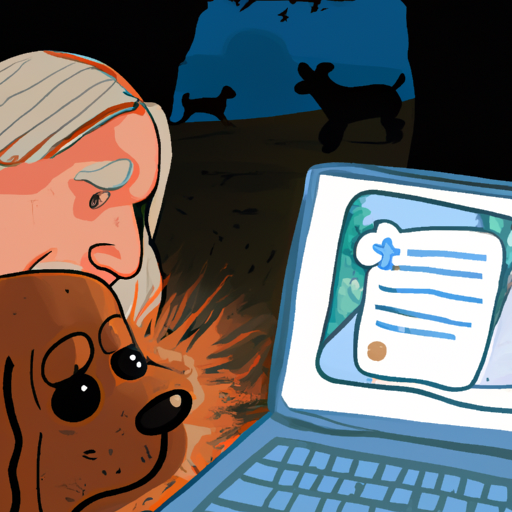Understanding Parvovirus in Dogs
You may have heard about Canine Parvovirus, also known as ‘parvo’, a highly contagious viral disease that can be fatal to dogs. It’s especially prevalent in puppies who haven’t been fully vaccinated yet. This disease affects dogs’ gastrointestinal tracts, causing severe vomiting and diarrhea, dehydration, and fatigue. But you may still wonder, why do dogs get parvo?
How Dogs Contract Parvo
Parvo is mainly spread through direct contact with an infected dog, or indirectly, by exposure to a contaminated environment. Here’s how your dog could contract the virus:
- Direct Contact: This occurs when your dog sniffs, licks, or consumes the feces of an infected dog.
- Indirect Contact: This happens when your dog comes into contact with contaminated objects like shoes, clothes, food bowls, and even human hands.
You should know that the parvovirus is resilient, able to survive indoors for at least two months and outdoors for many months, even through winter, on contaminated objects and surfaces.
| Method of Transmission | Duration of Virus Survival |
|---|---|
| Direct Contact | Duration of infected dog’s illness |
| Indirect Contact (Indoors) | At least 2 months |
| Indirect Contact (Outdoors) | Several months, through winter |
Symptoms and Diagnosis of Parvo
Typically, a dog with parvo will exhibit signs of severe lethargy, loss of appetite, fever, vomiting, and bloody diarrhea. It’s important to recognize these symptoms early, as parvo can progress quickly and can lead to death within 48 to 72 hours after the onset of symptoms.
If you suspect your dog has parvo, take them to a vet immediately. The vet will likely run a series of tests, including a physical examination, blood tests, and a special test for the parvovirus in feces.
Treatment and Prevention of Parvo
Unfortunately, there’s no cure for parvo. The treatment is focused on curing the symptoms and preventing secondary infections, while the dog’s immune system fights off the virus. This often involves hospitalization, intravenous fluids, antibiotics, and anti-nausea medication.
Prevention, however, is possible through vigilant hygiene and vaccination. Vaccinate your puppies against parvo as early as six weeks old, with booster shots every three weeks until they’re about four months old. Regular vaccination is also necessary for adult dogs.
- Keep your dog’s environment clean
- Avoid areas where unvaccinated dogs may have been
- Vaccinate your dog regularly
Frequently Asked Questions
1. Can Humans Get Parvo From Dogs?
No, humans cannot get parvo from dogs. The canine parvovirus is a different strain from the one that affects humans.
2. Can a Dog Get Parvo Twice?
It’s unlikely, but possible. Recovered dogs usually develop immunity, but it may not be lifelong.
3. Can Parvo Be Treated at Home?
No, parvo is a serious illness that requires immediate veterinary care. Home remedies are not effective against this virus.
4. How Can I Protect My Dog From Parvo?
The best protection is regular vaccination, along with good hygiene and avoiding areas where unvaccinated dogs may have been.
In conclusion, parvo is a serious, life-threatening disease, but with proper care and prevention, it can be avoided. Always consult with your vet for the best course of action to protect your beloved canine companion.



